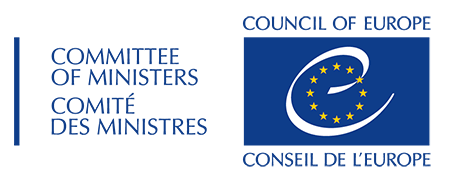


The Georgian Young Lawyers’ Association (GYLA), in partnership with the European Human Rights Advocacy Center (EHRAC), lodged written submissions to the CoE Committee of Ministers about fulfillment of obligations undertaken by the Georgian authorities in the form of individual and general measures regarding "Tsintsabadze group of cases."
The Committee of Ministers is currently overseeing execution of 4 decisions and 11 judgments made by the European Court of Human Rights against Georgia (Tsintsabadze group of cases), which include the following three cases litigated by GYLA: Tsintsabadze v Georgia, Bekaui and Others v Georgia and Studio Maestro LTD and Others v Georgia. The three cases involve violation of applicants’ right to life, ill-treatment, interference with journalistic reporting and ineffectiveness of investigation into these facts.
In the written submissions GYLA comments on effectiveness of investigations carried out by the national authorities for fulfillment of individual measures undertaken by the Georgian Government. It also focuses on measures that the government should implement for effective execution of the decisions/judgments of the European Court and in order to remedy shortcomings of the investigative stage.
With regard to general measures, GYLA noted that Georgia continues to retain the Code of Administrative Offences inherited from the Soviet era, which falls short of requirements of a fair trial and fails to provide adequate procedural guarantees for defendants. For instance, the case overlooks important issues like applying the reasonable doubt standard; protecting presumption of innocence; effective representation, etc. Although in its Action Plan submitted to the Committee of Ministers back in 2016, the State pledged to harmonize the Code of Administrative Offences with international standards, the government has not made any meaningful steps in this regard.
In its submissions, GYLA also underlined problems that continue to exist in with regard to prevention of ill-treatment, despite certain positive steps made by the State in this area. These problems include:
- The existing legislation about subordination of criminal investigations allows crimes to be investigated by the agency whose employees may be implicated in the very same crimes. In this way, existing regulations fail to ensure independence and impartiality of investigative authorities;
- While the State Inspector’s service lacks the power to carry out all important investigative measures independently and functions of criminal prosecution and court representation, the Service will not be able to effectively investigate crimes possibly perpetrated by law enforcement representatives;
- The existing legislation fails to ensure victim’s effective involvement in the pending investigation and keeping him/her adequately informed;
- Although provision of effective legal aid for victims of torture and ill-treatment is an important element of combating ill-treatment, the State has not yet made any steps in this area. Further, the State has not ensured protection and rehabilitation of victims of ill-treatment.
GYLA and EHRAC submitted detailed analysis about the foregoing issues to the Committee of Ministers, as well as recommendations to ensure effective execution of decisions/judgments in Tsintsabadze group of cases.
Full text of the submissions is available in the enclosed file.
ჯ. კახიძის #15, თბილისი, საქართველო, 0102 ; ტელ: (995 32) 95 23 53; ფაქსი: (995 32) 92 32 11; ელ-ფოსტა: gyla@gyla.ge; www.gyla.ge
15, J. Kakhidze str. 0102, Tbilisi, Georgia. Tel: (995 32) 95 23 53; Fax: (995 32) 92 32 11; E-mail: gyla@gyla.ge; www.gyla.ge